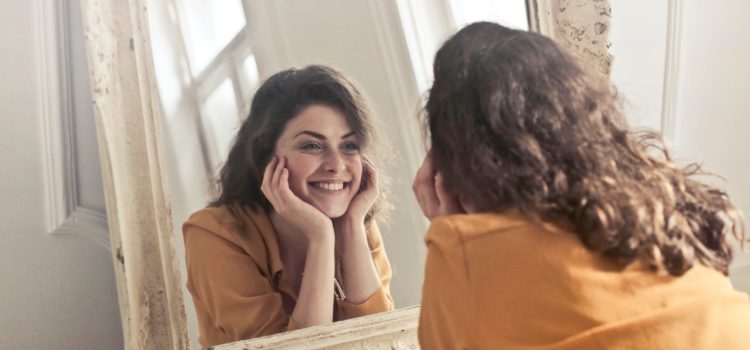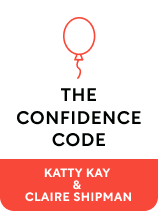

This article is an excerpt from the Shortform book guide to "The Confidence Code" by Katty Kay and Claire Shipman. Shortform has the world's best summaries and analyses of books you should be reading.
Like this article? Sign up for a free trial here .
How does confidence develop? Is confidence primarily a matter of nature or nurture?
Confidence isn’t a matter of nature versus nurture—both our biology and our environment affect us and neither will win out. While up to 50% of confidence might be determined by our genes, that doesn’t mean that any of us are doomed to be under-confident.
In this article, we’ll take a look at the role of genetics and environment in confidence development.
The Role of Genetics in Confidence Development
Psychological research points out that confidence is genetic to some extent. Behavioral geneticist Robert Plomin studied identical twins and fraternal twins and found that identical twins had more similar answers than fraternal twins on both self-assessments of their ability and their actual ability. He found that the correlation between confidence and genes could be as high as 50%, which might be even higher than the correlation between IQ and genes.
While up to 50% of confidence might be down to genetics, that doesn’t mean that confidence is a fixed trait. Certain genes related to character traits can turn on and off, thus changing our brain chemistry—and our confidence levels. Epigenetics is the study of how life experiences can change our genes and DNA. For example, identical twins often have the same DNA but have different personalities.
Interestingly, gene off-ons might be inheritable even after only a single generation. Scientists don’t know yet if women who work on their confidence can pass this to their children, but it could be possible. For example, some studies found that pregnant women who witnessed the Twin Towers attacks passed stress hormones to their babies.
Sensitivity Genes
Sensitivity genes are genes that make someone more sensitive—not more vulnerable—to their environment. This means that they’re more likely to absorb whatever influences they’re surrounded by, whether positive or negative.
For example, rhesus monkeys that had confidence-facilitating genes grew up to be non-anxious adults regardless of what kind of mother they had. Monkeys with social anxiety genes grew up to be anxious adults when they had anxious mothers and grew up to be somewhat anxious when they had average mothers. But when they had great mothers, they grew up to be more confident and healthy than the monkeys with the confidence-facilitating genes. (Research suggests monkey mothers have a larger effect than fathers.)
Sensitivity is highest in early childhood and psychologist Suomi thinks it may also be high in other key periods like menopause, labor, and puberty.
Environment and Confidence
As sensitivity studies illustrate, environment and upbringing play a key role in confidence development.
Influence #1: Expectations of “goodness.” Starting in elementary school or even younger at home, girls are rewarded for being “good”—quiet, neat, compliant, and well-behaved. Encouraging goodness discourages confidence-building behavior like taking risks, being rowdy, or teasing and roughhousing (both common ways boys play).
Influence #2: Fewer girls play sports. Sports are good for building confidence because playing them involves competing, winning, and losing, which have parallels with victories and setbacks throughout life (such as making a mistake at work.) However, fewer girls play sports than boys, and girls are six times more likely to quit their team than boys. This is because girls’ self-esteem drops more than boys’ during adolescence and losing makes them so uncomfortable they stop competing.
Influence #3: The rules change. Unlike in the classroom, in the workplace, academic achievement and competence are no longer the requirements for success. Instead, success requires self-promotion, political savvy, and pushing beyond nos. Many women aren’t skilled in these areas since they haven’t had practice in their upbringing.
Influence #4: Stereotype threat. When there’s a stereotype associated with a minority group, members of the group feel pressure to embody the stereotype. There are many negative stereotypes associated with women’s abilities. For example, women are stereotypically worse at math than men.
Influence #5: Systemic barriers. Women don’t have access to the same resources as men in the U.S. For example, American women earn more degrees than men and according to the Global Gender Gap, the U.S. is first in equality in educational attainment. There’s no lack of competence—but the U.S. is 67th in gender pay equality and 60th in political empowerment.
Influence #6: Body image expectations. Women’s confidence is strongly tied to physical appearance and they’re judged on their appearance more than men are. Women who don’t meet society’s beauty standards have a harder time in life.
- For example, obese girls are less likely to attend college than other girls, but obese boys are just as likely to attend as other boys.
Influence #7: Self-imposed obstacles. In addition to the six external influences that inhibit women more than men from developing confidence, women also assume certain burdens such as a desire to be likable (making us so scared of offending people we don’t act), overthinking (inhibiting our ability to act) internally attributing everything (chalking up anything that goes wrong as a personal failing), and perfectionism (unattainable, so you’ll always feel too inadequate to take action).

———End of Preview———
Like what you just read? Read the rest of the world's best book summary and analysis of Katty Kay and Claire Shipman's "The Confidence Code" at Shortform .
Here's what you'll find in our full The Confidence Code summary :
- An examination of the art and science of confidence
- Why women have more trouble accessing confidence than men
- How to build confidence in yourself and others






